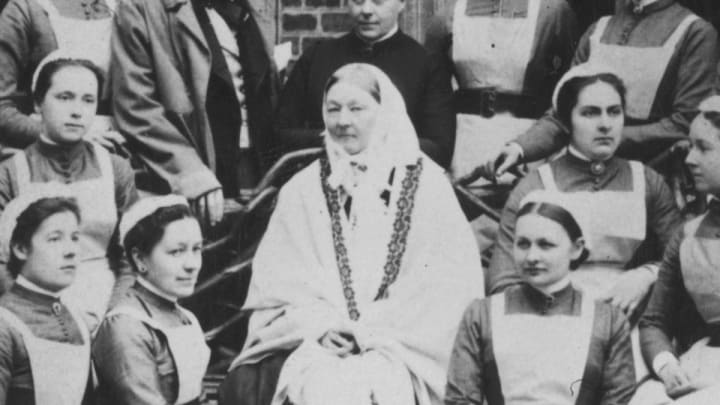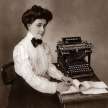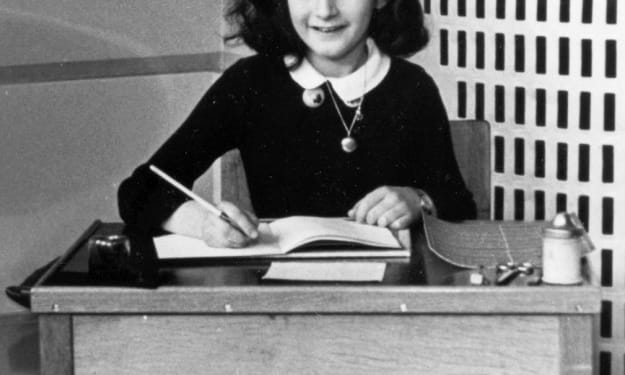"The Lady with the Lamp"
Florence Nightingale

We know her as “The Lady with the Lamp.” Florence Nightingale can be called ‘the mother of nursing’ as she did so much within her life-time to change nursing to the standards, the very high standards, which we see today. Her life is an interesting one.
The second of two daughters, Florence was born to William Edward and Frances Nightingale. Being born in Florence on 12th May, 1820, she was named after the city. Her father was a wealthy banker and was able to provider his family with a privileged lifestyle. There were servants and two houses, on in Derbyshire and one in Hampshire. William Edward wanted his daughters to have a good education (which was unusual in this Century) and guided them through history, philosophy and literature. Florence excelled at mathematics and languages, being able to read and write in French, German, Italian, Greek and Latin. Rather than following the normal way of life, for young ladies to learn the ‘traditional’ skills of home management, Florence preferred to read about the great philosophers and to have serious ‘debates’ with her father about politics and social interests.
Being in a liberal Unitarian family, Florence found comfort and stability in her religious beliefs. Believing that God spoke to her personally, Florence got her first “call from God” at the tender age of 16. Florence believed that this call was to help reduce human suffering and nursing seemed to be the ideal way to do this, serving God and mankind. During this Century, it was a good ‘occupation’ for a young lady (of the upper-classes) to nurse within the family, caring for sick relatives, but it was ‘quite unsuitable’ to actually train as a nurse. Her parents felt it was an ‘inappropriate activity’ for their daughter, and expected Florence to get married and have children. Their youngest daughter rejected this ‘expected role for a woman of her status’ and worked hard to educate herself in the art and science of nursing. Florence went against the normal flow of what was ‘expected’ of her.
Florence Nightingale was described as attractive, slender and graceful, charming, with a radiant smile. The politician and poet Richard Monckton Milnes courted Florence for 9 long years, but she rejected her suitor, feeling that being married would interfere with her calling (from God) into nursing. Florence now went travelling abroad, meeting many people who would help her, especially in her nursing. For example, Sidney Herber (a politician who had been Secretary of War, 1845-1846) and his wife, became lifelong friends of Florence Nightingale and was instrumental in facilitating Florence’s nursing work in the Crimea. When travelling through Egypt, her writings are a testimony to her learning, her literary skills and philosophy of life. When Florence sailed up the Nile to Abu Simbel (January 1850), she wrote of the Abu Simbel temples: “Sublime in the highest style of intellectual beauty, intellect without effort, without suffering --- not a feature is correct --- but the whole effect is more expressive of spiritual grandeur than anything I could have imagined. It makes the impression upon one that thousands of voices do, uniting in one unanimous simultaneous feeling of enthusiasm or emotion, which is said to overcome the strongest man.”
A turning point in Florence’s life was when she visited the Lutheran religious community at Kaiserswerth-am-Rhein in Germany. Observing Pastor Theodor Fliedner and the deaconesses as they worked with the sick, Florence published her first work “The Institution of Kaiserswerth on the Rhine, for the Practical Training of Deaconesses” (1851). It was also at this same institution that Florence received 4 months medical training, which formed the basis of her later care. Coming back to England, Florence Nightingale took the position of superintendent at the Institute for the Care of Sick Gentlewomen in Upper Harley Street, London, a position she held from August, 1853, to October, 1854. Her father had given her £500 as an annual income (roughly £40,000 today) and this allowed Florence to live comfortably and also to follow her ‘calling’ for nursing.
The Crimean War proved to test Florence’s nursing skills. She led an officially sanctioned party of 38 women (nurses) arriving in Scutari at the Barrack Hospital on 5th November, 1854. Being very much a ‘man’s world’, the group of women was not welcomed by the medical officers. Florence was appalled at what she saw! The ‘conditions’ were filthy, supplies totally inadequate, the staff uncooperative and the overcrowding severe. Florence said it was the “Kingdom of Hell.” She bought much needed equipment with funds which were provided by the London Times, and managed to enlist the wives of the soldiers to assist with the laundry. The wards were cleaned up and basic care was provided for by the group of nurses. Florence Nightingale now established ‘standards of care’, which required the basic necessities of bathing, clean clothing and dressings, and adequate food. It is interesting to learn that the psychological needs of the wounded soldiers was also being met, with the assistance of writing letters to relatives and educational and recreational activities. It is at this time that Florence earned her title as “The Lady with the Lamp” when she used to wander the wards at night-time, providing extra support for the wound soldiers. The soldiers and medical officers now started to respect Florence Nightingale and her group of nurses. “Her accomplishments in providing care and reportedly reducing the mortality rate to about 2%” made Florence famous back in England through the press but especially through the soldiers’ letters ‘back home.’ The death rate was 42%! One of the hygiene practices which Florence implemented was “hand washing” --- something we take for granted today. Florence herself would work up to 20 hours a day, doing all sorts of work, from house-keeper to cook to washer-woman. Florence Nightingale was now a ‘Celebrity’ back in England.
Putting so much physical and mental work into her everyday nursing, Florence became very tired, but this did not stop her from travelling around the other hospitals in the Crimean Peninsula (May 1855), adding her knowledge to those she met, hoping to improve the standards of these other hospitals. Her friends were worried about her, and with good reason. On May 13th, Florence came down with a high fever and extreme fatigue, and was diagnosed with Crimean fever (brucellosis). Without the antibiotics that we have today, she became too weak to even feed herself but still refused to go back to England, to be nursed at home. Her health started to slowly return when Florence moved into the British ambassador’s house, which was on the seaside, for most of the summer. The group of nurses who had come out with Florence, decided to go back to England but Florence was determined to stay. Her aunt Mai made the journey to be at Florence’s side.
This second year in Turkey was quite different from the first. Content that the standards of the hospitals was improving, Florence turned her attention to writing --- from official reports to statistics to even writing letters for the wounded soldiers to their relatives back home --- even to letting families know that a soldier had died. Along with this, she also improved life for the convalescing soldiers. A fund was started in England so that the recovering soldiers could enjoy “amusements such as games and books.” After seeing for himself the hospitals in Turkey, the scientific advisor to the Secretary of War recommended that all nurses, and not just those in Turkey, should be placed under Florence Nightingale’s authority (1856). She could now make sure that all of the hospitals operated to the high standards she now expected and believed in. The Crimean War at last finished and Florence and her aunt Mia went home to England, but only after the last soldiers departed from the hospital in Scutari.

Arriving home. Florence found that the important citizens of London had established the “Nightingale Fund”, with enough money in the fund for Florence to open a nursing school (in England). Needing another challenge to focus on, and despite her continuing poor health, Florence dived into another project, but it was not the nursing school. Remembering the terrible conditions of the English soldiers in Turkey, Florence wanted to change the way in which things were done, but as a woman, she had no political power. Florence would need the help of powerful connections “to achieve the reforms she saw was necessary to save” the lives of these soldiers. In 1856, Florence Nightingale was presented to Queen Victoria and Prince Albert, the Queen saying of Florence: “Her mind is solely and completely taken up with the one object to which she has sacrificed her health and devoted herself like a saint.”
Lord Panmure, the now Secretary of War, was concerned with what he had heard about how these soldiers had been treated and appointed a committee to make enquiries. He also asked Florence to write a detailed report with “suggestions for reform.” She took this task seriously, moved into the Burlington Hotel in London, and worked up to 20 hours a day (again) to get this report accurately written up. Florence was dedicated to this work and had no time for distractions. In September, 1857, Florence Nightingale finished her work --- an 800 page document called “Notes of Matters Affecting the Health, Efficiency and Hospital Administration of the British Army.” The report was supported with statistics, graphs and tables, which was a new approach within healthcare. This encouraged Lord Panmure to begin work on reforming the crowded and unsanitary barracks and military hospitals. Florence felt she had succeeded “in instigating tremendous change.” Now, Florence felt she could move on to her ‘calling’ --- her dream of opening a nursing school. The school was located in St. Thomas's Hospital in London.
Being too ill to leave home, Florence did a lot of “administration” work from her home, which was now a house by London’s Hyde Park, bought for her by her father. She loved her cats and her illness made her difficult to live with, as she criticized her maids constantly ‘for not performing to her high standards.’ Florence learnt of the terrible conditions that were within the Workhouses, realizing that there were no trained nurses and that conditions were unsanitary. The poor were treated as lazy when really most of them wanted self-respect and to be able to support themselves. She sent some of the nurses from the Nightingale School into the Workhouses, and great improvements were noted.
In the 1880’s, her illness ‘calmed down’ to such an extent that Florence was able to visit the nursing school and visit her married sister (taking her cats along with her). Florence had students from the nursing school visit her in her home ‘for tea’, and this built lasting relationships.
Florence Nightingale outlived most of her immediate family, even Queen Victoria, but as she got older, her health started to fail quickly. During this time, Florence received the “Order of Merit” and the “Freedom of the City of London”, (her Aunt Mia’s grandson accepting them both on her behalf). Florence Nightingale fell asleep in a chair on 13th August, 1910, and never woke up. At 90 years of age, her death was a peaceful one. On 20th August, thousands attended her funeral which was in London, and Florence was buried at St. Margaret’s Church, Hampshire, next to her mother and father.
Florence Nightingale was an interesting woman. Born in a Century when women were very subservient, Florence chose to live an independent, almost ‘manly’ life. She fought all the way to raise the standards of nursing, and today she is ‘known’ as the Mother of Nursing. Yet, Florence critized the early women’s rights activists. It has been said that Florence Nightingale remained ‘chaste’ all of her life because she believed in her religious calling.

“The Nightingale Pledge is a modified version of the Hippocratic Oath which nurses recite at their pinning ceremony at the end of training. Created in 1893 and named after Nightingale as the founder of modern nursing, the pledge is a statement of the ethics and principles of the nursing profession.”
(My research comes from = Wikipedia / Britannica and “Florence Nightingale: A Life from Beginning to End”)
About the Creator
Ruth Elizabeth Stiff
I love all things Earthy and Self-Help
History is one of my favourite subjects and I love to write short fiction
Research is so interesting for me too






Comments
There are no comments for this story
Be the first to respond and start the conversation.